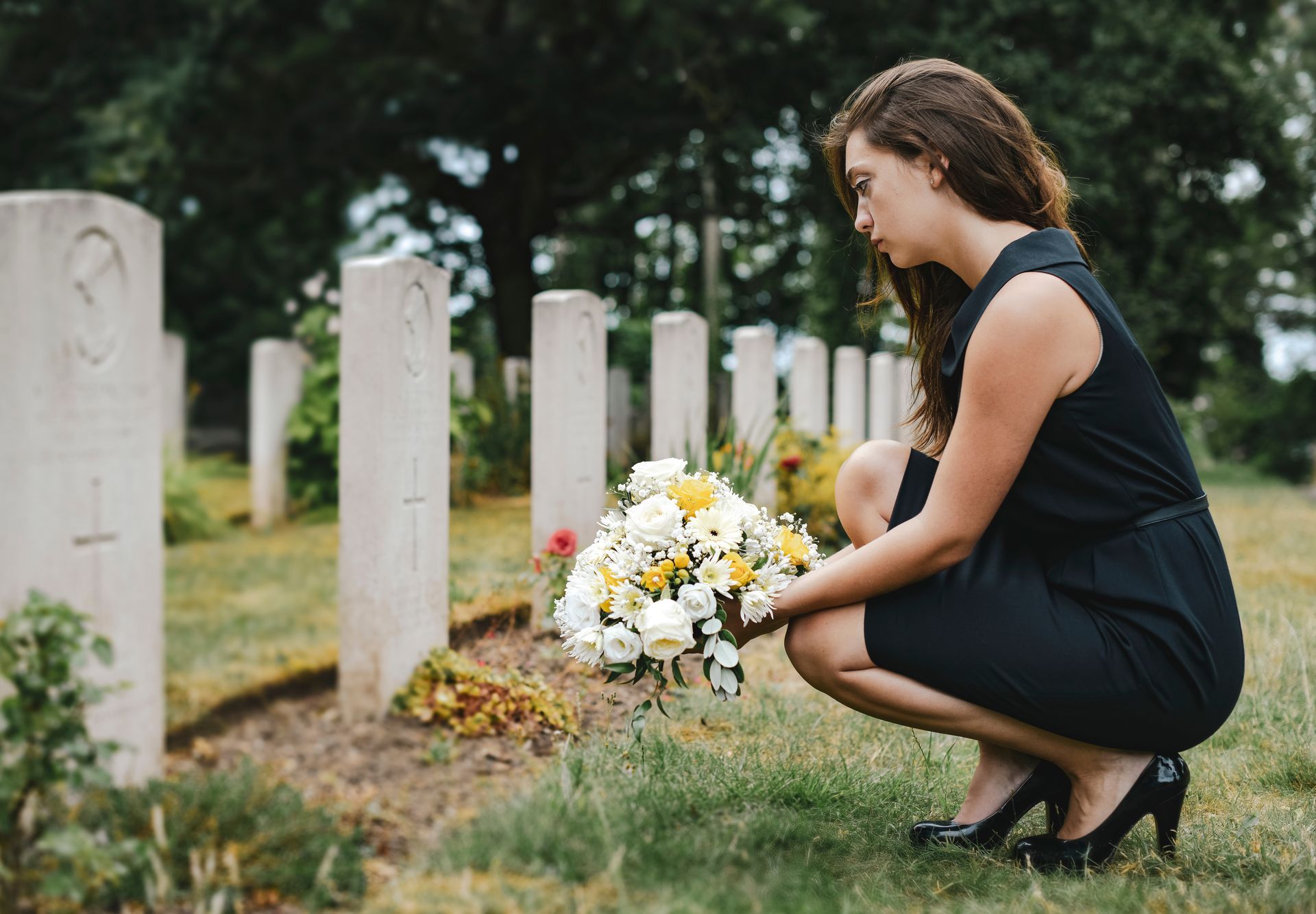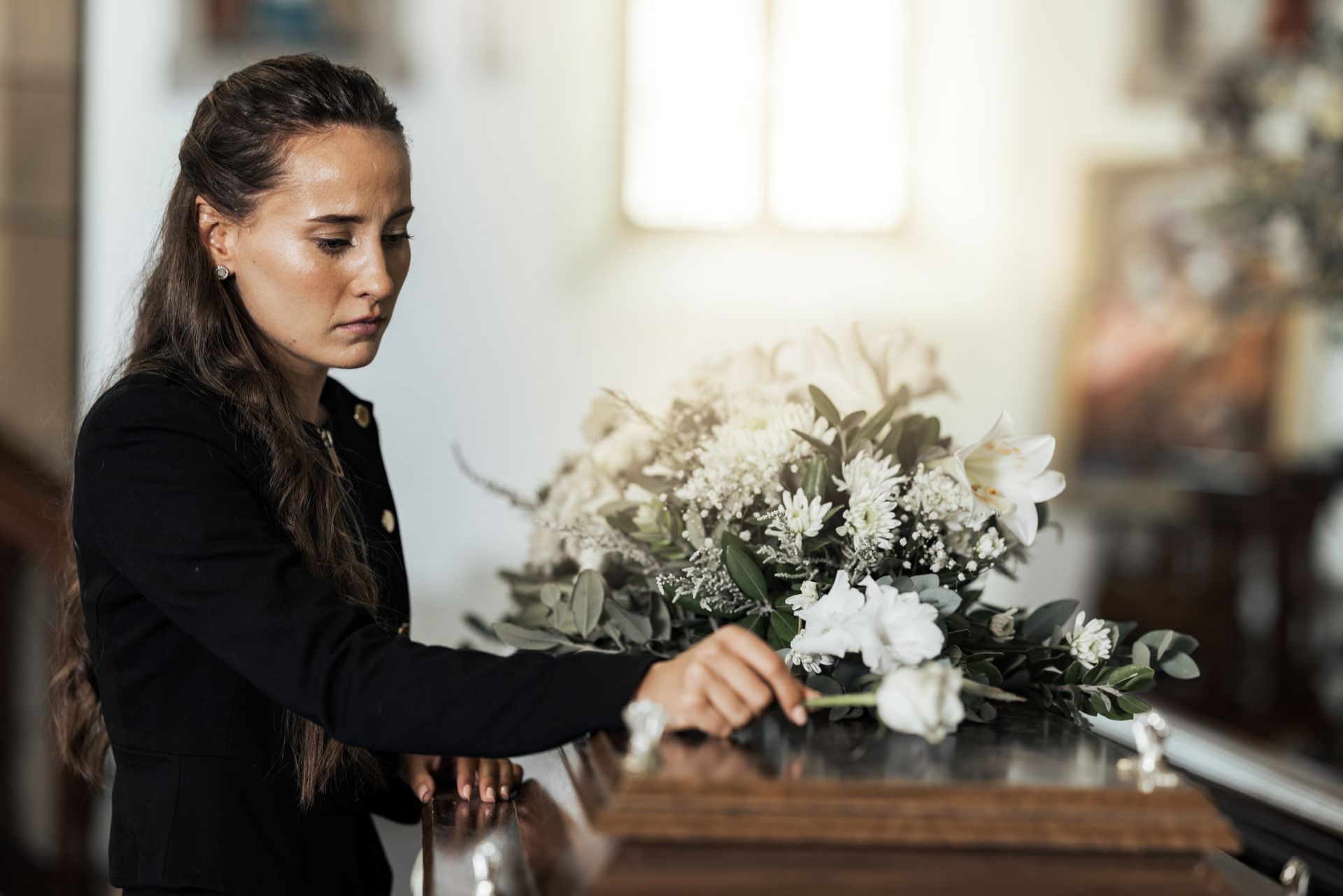How to Write a Eulogy
Writing a eulogy can feel like saying your final goodbye to someone you love, which means it’s incredibly difficult to think rationally when piecing it together. You might have found yourself at a loss for words, or are struggling to figure out where to start.
Eulogies don’t have to be perfect and can reflect the life of your loved one however you wish for them to be remembered. If you’re struggling to put pen to paper and express how you feel, then
Waters & Sons have put together a few tips to help you along the way.
Talk to loved ones
Writing a eulogy by yourself can be overwhelming. With the help of loved ones, and by reminiscing over memories, you may find it much easier to find inspiration. Try having a cup of tea and recall the funny moments, the resplendent days and times that they brought light into your life.
Ask them what they would like said about their friend/relative and incorporate this in the speech. You may find yourself reminded of stories that hadn’t occurred to you before.
Talking to loved ones will also give you a clearer picture of the key moments in the person’s life, such as their younger years, the school they went to, or what they were like as a parent. This process can also be a fantastic way of processing your grief.
Tone of voice
The tone of the eulogy is entirely up to you. It could be celebratory, or solemn, larger than life or quiet. You’ll also need to decide if you want the eulogy to be formal or lighthearted.
The easiest way to determine the tone of voice for a eulogy is to echo the personality of your loved one. Think about how they would tell the story of their life. Would they want to be remembered for their kindness, gentle temperament or sense of humour?
You should also consider who will be attending the funeral, and allow this to inform the delivery of the eulogy.
Once you have decided on a tone, then it should be easier to put your thoughts into words.

Narrow it down
Eulogies usually last between 3-5 minutes, so you might not have the chance to say everything you want to about your loved one’s life. Narrowing down anecdotes and prominent feelings is one of the hardest parts of writing a eulogy.
Try asking yourself the following questions to help with the process:
- If you could only say 3 things about the deceased, what would they be?
- Did they have any hobbies or interests that were dear to them?
- What were the most prominent moments and achievements in their life?
- Think about their personality, and what they meant to you
Remember, it is always possible to continue discussing your loved one’s life at a wake held after the funeral. If there is anything you wanted to say but didn’t get the chance to add in the eulogy, you may have the opportunity to give a second speech, or simply have a few words with friends and family.
Structure
There is no winning structure for a eulogy, and it can depend on the tone of voice you’ve settled on.
Popular eulogy structures include:
- Telling the story of the deceased’s life with a beginning, middle and end
- Begin by discussing the impact they left on people and finish with a meaningful poem
- Tell several short stories that reflect your favourite moments with them
- Recognise the significant people in their life
At
Waters and Sons, we’re happy to offer advice on writing the perfect and fitting eulogy.
Please
contact us if you have need any assistance.
How to personalise a eulogy
A eulogy doesn’t have to follow traditional funeral etiquette, and can be whatever you want it to be. By personalising a eulogy, you’ll be able to create a more vivid picture of who your loved one was and what they meant to the people around them.
You could choose to:
- Tell amusing stories from their life that evoke positive memories
- Talk about their passions and talents
- Recount the story of how they met their spouse or partner
- Read an excerpt from their favourite poem, song or book
- Give their loved ones the opportunity to say something during the eulogy
Finish with a Goodbye
A eulogy is often used as a way to say a last goodbye to your loved one, so it is commonplace to finish with a subtle farewell nod. This could be anything from saying the word ‘goodbye’ to ‘it’s been a pleasure knowing you’, or even using a humorous greeting that they were known for.
At
Waters & Sons, we understand how overwhelming it can be to deal with the
little touches at a funeral. That’s why we offer visual tributes that include slide shows, images and videos that help you pay tribute to your loved one in a more personalised way.
If you have recently suffered the loss of a loved one and require help or advice regarding planning their funeral, please feel free to
contact us at any time.
If you require any more information on how Waters and Sons can support you through this trying time, feel free to contact us.


Home | Blog













